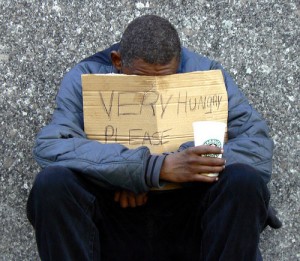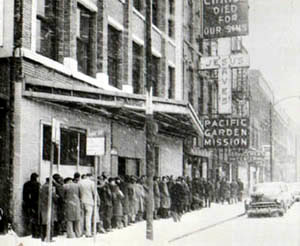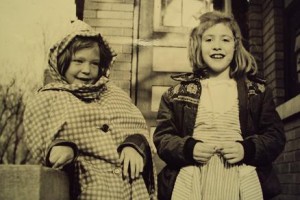We got an early start today, leaving Michigan well before sunrise. After dropping Nelson at O’Hare, Birgitta, Jack and I set off on a day of adventure, starting with a big Chicago breakfast. We worshiped at Moody Church, then headed for “The Magnificent Mile,” joining in with the shopper’s parade along beautiful Michigan Avenue.
As we walked, we were both disturbed to see beggars on every corner. Some were shaking cups of coins, calling to passers-by, while others barely peeked out from beneath their hoods or behind their signs. We saw men and women, young and old, and all were begging for money.
Literally hundreds of shoppers streamed past, ignoring the beggars and their pleas for help. As Birgitta and I shared a McDonald’s lunch, we tried to answer the many questions prompted by the presence of so many beggars. Were they hungry as their signs said? When did they last eat? Were they homeless? Where did they last sleep? Did they have families? How did they come to this?
As we talked, new questions arose. Would it be an insult to put only coins into their cups? And if we put money in one, shouldn’t we put it in all? Should we carry a roll of bills for this purpose? Would McDonald’s gift cards be better? Or maybe a scarf? A hat? Would a smile without a practical gift seem cavalier?
My dad served on the board of Pacific Garden Mission for several decades, believing in their work with the poor. He used to keep PGM business cards in his pocket for the homeless, telling them if they walked over to the mission, they’d receive a meal, a clean bed and whatever clothing they needed. Were these cards a blessing to the recipient or a disappointment?
After leaving Birgitta at Union Station to travel with hundreds of other students back to Iowa, I drove home to Michigan, bothered by what we’d seen today. I felt guilty for not having given of myself or my money. Although I had cards for “GettingThroughThis” in my pocket, they seemed inadequate for such severe problems.
I decided to pray about these struggling souls, asking God what to think (or do) about them. His answer came quickly: “Take your cue from Jesus. What did he do about beggars?”
When I got home, I checked, and the one thing Jesus always did was help. But he inevitably connected it to faith in himself as God’s Son. He linked his practical gifts (such as healing) to the Gospel’s truth.
I thought back to Dad’s method of helping beggars, giving them the PGM cards. Because the mission offered worship services and presented the Gospel before meals, he had it right. His card was a ticket to both practical help and the truth of Jesus’ eternal healing.
So, what should Birgitta and I have done today? Gifts of money, hamburgers or hats would have been OK but incomplete. If we’re to follow Jesus’ example, a PGM card, a GettingThroughThis.com card or another piece of Scripture coupled with money, hamburgers or hats would have been much better.
Tangible gifts do help, but only temporarily. The powerful help of the Gospel goes on forever.
“Though [Jesus Christ] was rich, yet for your sake he became poor, so that you by his poverty might become rich.” (2 Corinthians 8:9b)




